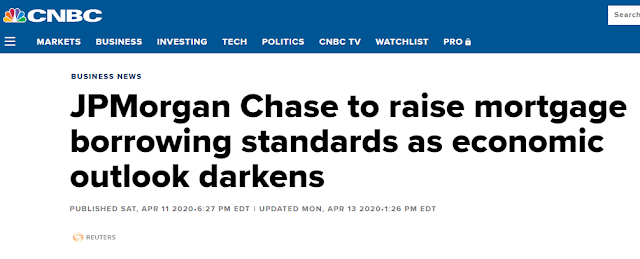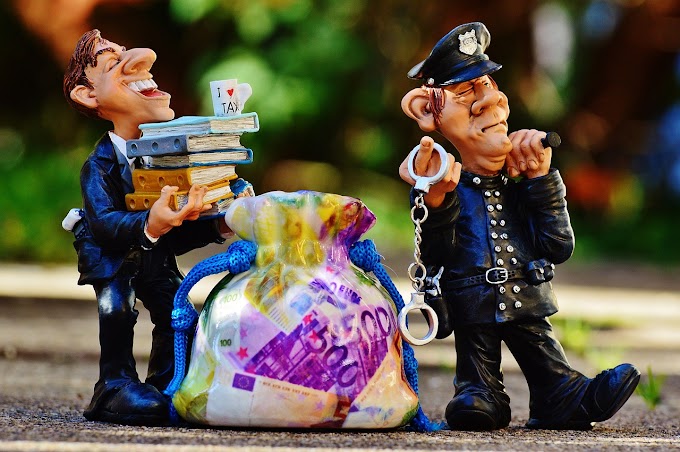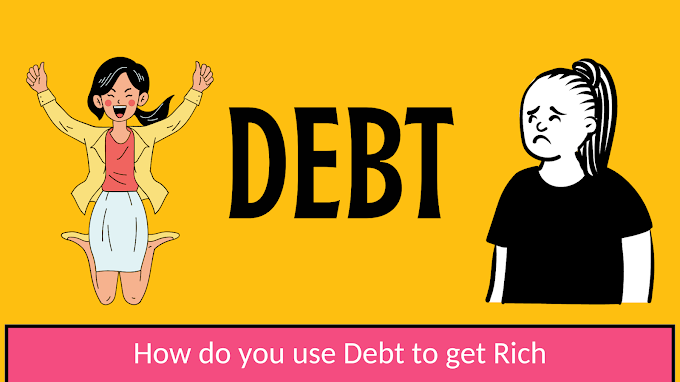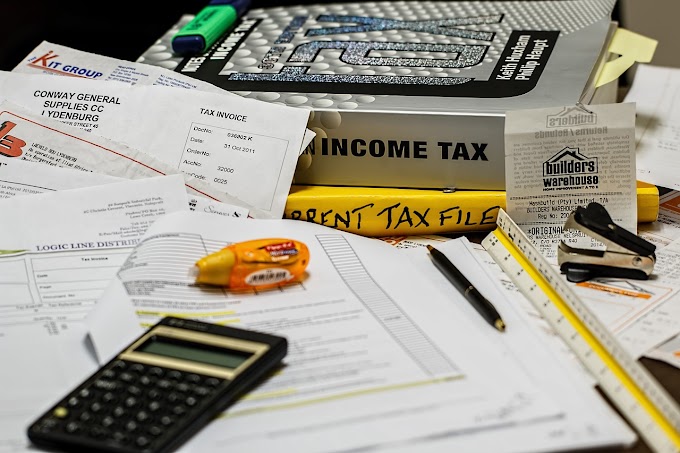If you are in the housing market whether that means buying or selling. You're not sure what you should do watch this article.
I'm going to be talking about real estate in general. Where I think it will be going if prices will be going up or going down.
I will give you compelling arguments for both sides it is your responsibility to make that decision.
Welcome back I am here to teach you all of these that you should have learned in school about money but for whatever reason, they forgot to mention it please be sure to subscribe because to talk about everything from personal finance to the best things of the economy.
Normally housing is influenced by a couple of factors that would be the interest rate that you're paying supply and demand obviously then lending standards.
The Federal Reserve pretty much and it's a little more complicated than this but long story short. The Federal Reserve can kind of control the interest rates for the whole market just by adjusting their federal fund's rate. I don't want to get into details on this article but if you do want an article on that you can drop it in the comments.
Basically, things tend to move in lockstep with the Fed fund rate. They will typically lower their interest rates to incentivize people to get into a home or to get into whatever just again into more debt really.
As you may or may not know interest rates are pretty much on the floor right now. I mean we've reached all-time lows. I believe that from my check the housing rate was 3.4%. You can get a house for 3.4% interest for 30 years which is pretty awesome.
Through my research, I found some things that consider where you will go straight up or straight down like some kind of mix in between, and then I'll also let you know what I'm gonna be doing.
Deflation is very specifically why I think prices can be potentially going down. The first one is harder than any requirements like I mentioned before.
There are certain things that do affect the prices of homes, okay Jase has said starting in April they will be requiring a 700 credit score and 20% down for your home.
Last time I checked I think the average that people put down is actually 10%. Now Chase is requiring double that amount in order for you to get home.
There's a couple of reasons why they would do that but basically, uncertainty and then liquidity drying up Chase is an extremely large bank I would not be surprised if other banks followed suit.
In fact, I do think other banks have already started to follow suit. When that happens it becomes much more expensive to buy a home for the average person.
That means a lot of the demand will evaporate right because a lot of people don't put down 10% to 20%. Like in my area that would be upwards of sixty or seventy thousand dollars which not a lot of people just have laying around okay.
If you go to the US Debtclok they say that each family only has about $13000 which is nowhere near twenty percent in my area. But now you have less demand and maybe the same amount of supply that will push prices down because now these people don't have as many people to sell their homes to.
So they'll have to put the price down or maybe people can no longer afford a $500,000 house because their 20% would really only get them into a $300,000 house.
I will put the price down another decision every point is lots of jobs obviously not all these jobs are completely lost.
Once he comes and gets back up and running there will be people getting back into the workforce but you have to remember this v-shape recovery they're talking about will not exist. There are still going to people who are afraid to travel people are still not going to want to shop.
Let's say you you have a Macy's are you gonna get hired back maybe not they might just hire a small group and kind of see how the traffic is picking up and then as things get back to normal then they'll bring the whole workforce back on.
If I take a walk for people to actually get their jobs back and that again it's less demand because now maybe I wanted to buy a house but my income is looking like they used to look before. I'm not going to be able to battle poor prices down.
Also more supply okay maybe people again kind of tying in with the other points I made maybe people lost their job. They don't see themselves getting another job back but they have this house with all this equity.
If you're somebody who's a little bit nervous about what the markets gonna do you might want to capture that equity right because let's say you had a house that was worth five hundred thousand when you bought it you paid it down to $400,000 but at this moment it's worth $700,000.
You can get a nice cute little check you know so why would you want your money sitting in a house some people think right.
They'll try to sell their house to kind of pull that equity out and that would mean a lot more supply going into the market with the same or even less amount of demands. Because of the other factors have I mentioned.
New Proposed Bill
Also, let's talk about this new proposed bill because this bill is honestly quite shocking. They have provisions in there that would basically say that if you are an investor which I think you should always consider real estate and investment.
Even if you consider just living in there and you don't have any intentions of renting it out. You should always look at it as an investment but anyway.
If this bill passes they pretty much make it impossible for these landlords to not have to get this money. Because they're gonna block people from paying rent and the Landlord is the one that has to go recoup this rent payment from this fund that the government's going to create.
If they take money from that fund they cannot raise the rent for 5 years. A lot of people who buy real estate properties would factor in. Like percent rent percent increases.
If it told me for five years I cannot even raise my rent yeah. I want to get out of this because this might be sucking up all my money.
Also within this bill. You can only sell to specific buyers for the first 60 days you want to sell your house and the specific buyers are pretty much all government entities. You can only sell your house to the government for 60 days.
Then after no one from the government wants anything to do with your property then you can sell it to the rest of us if this isn't it would frighten me.
I would want to get rid of my house right now look if I don't want to have my rent frozen for five years. I don't want to have to only be able to sell to a select few people that don't really make sense.
This is honestly bizarre and if I was somebody that kind of on the fence already selling my house. I would damn sure want to sell it now.
Because I don't want to end up having to go through all of this trouble of not getting any rent payment that I've been so applied to a fund that only having to sell to a select number of people like this is nuts.
Inflationary Point
The inflationary points why do I think that home prices can actually go up from you there are no more serve requirements and if you did not know the banks. When you deposit money in there they were supposed to keep a maximum of 10% of your money in the bank.
Then they can go ahead and loan your money over and over and over again. Well, the Federal Reserve said that's not necessary we don't have to keep any of your money on hand.
Now you're a thousand dollars can get loans over and over and over and over again. They don't have to keep any of your $1000 actually in the bank.
This kind of goes against what I said earlier because Chase is having more restrictions but if things do take a turn and you know economies are looking a little bit better.
They might actually reverse course and have even looser lending requirements because now I don't actually have to keep a reserve of anybody's money. I can just keep on loaning in loaning as a bank. I'm saying me but I mean the bank.
Mortgage-backed Securities
There's no other sense for me to kind of be wearier because I don't have to actually keep any money on hand anymore. In conjunction with that, the Federal Reserve buys what we call mortgage-backed securities.
And that just for those who haven't really been on my website before is when you go to a bank they give you a loan but they don't actually keep your loan on file because who wants the wait around 30 years for their money right.
They will get a whole bunch of loans group it together and sell it to whoever. The Federal Reserve decided hey you know we're gonna start buying those. They're buying it because they're really junk ok.
These loans that go into these mortgage-backed securities are mostly junk. They're buying those up. So for me as a bank if I know hey I can just originate a whole bunch of bad loans who cares give me all your money that'll prop prices up because now the demand will increase right.
Because if now you were ineligible for a house before but you are now. A lot of people are gonna try to come and get a house right everybody wants to be a homeowner. And from the bank's perspective was really no risk.
Because once I give you this loan I'm going to group all these loans together and sell them to security which the Federal Reserve is buying hand over fist.
Universal Basic Income
Another inflationary point is universal basic income which I talked about in this article where the government's saying; hey we're gonna just give everybody $2,000 for halibuts which obviously I'm never gonna turn down.
This currency but has long-term effects that could be catastrophic but at any rate, if everybody's hitting the next $2,000 a month. Why wouldn't house prices go up? If you are able to keep your job now you can really afford that house and you have even more income to be considered. When you're actually applying for a loan again that would mean more in demand pouring into these banks.
People really feel good because they have that extra cash and that drives prices up. Also in this bill, there are a lot of restrictions from a landlord standpoint. If you are an investor basically this bill forbids you to sell to anybody for a period of 60 days.
When you want to actually sell your house you'll have to apply to this fund and see if anybody in this fund which is mostly government entities wants anything to do with your house.
They don't then you can sell to the public that I mean you will dramatically extend the time that you have to actually sell a home which to me something.
It would be less supply because now if this is effective today for example all the homes that where I take this money from this fund have to wait two months before they can even show you the house. If the man stays consistent then that can absolutely push prices up.
There are a lot of unknowns personally I'm just kind of sitting on the sidelines and saving up money because I do feel it will have deflation first and then you see inflation.
Deflation
Deflation is where the rich get richer they would want to see prices deflate so they can buy it down here on this trip and then ride it all the way up and that's where the real money is made down here so I think things have to go down before they come up but some would you think in the comments below.
*Please be sure to do your own due diligence before making ANY financial decisions. On my website I share with you my research but please verify everything for yourself! I do not give investment advice, share my thoughts and my choices!*








